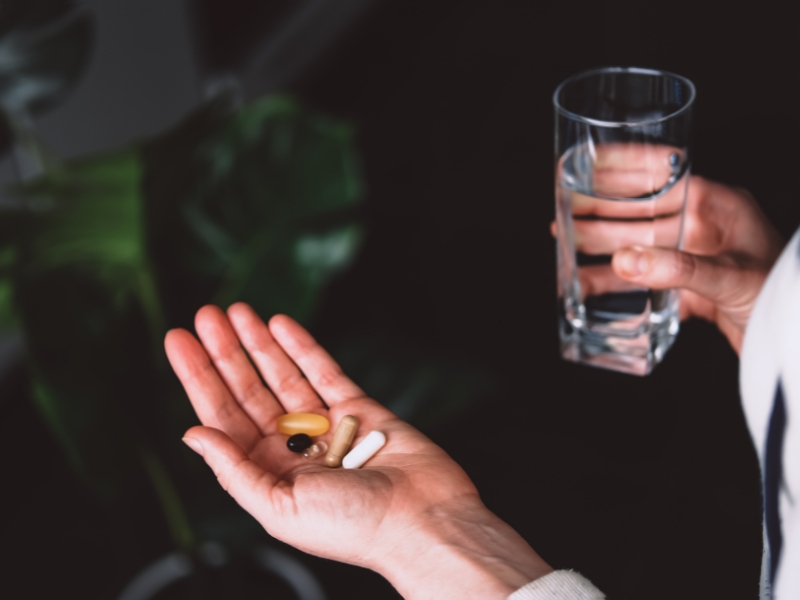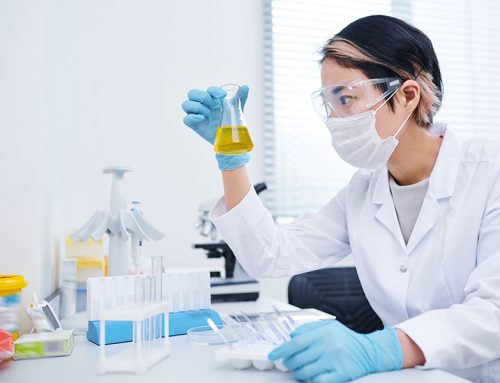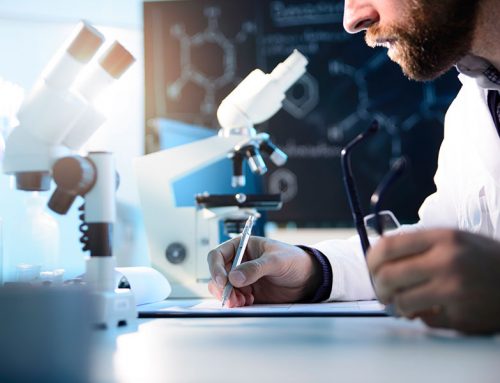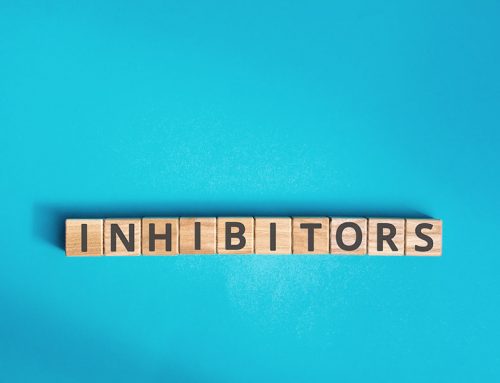
An adequate supply of Coenzyme Q10 to the heart muscle tissue cells is absolutely essential for good heart health. Coenzyme Q10 is necessary for the production of ATP energy in the cells. An energy starved heart is a failing heart.
Once we have swallowed a Coenzyme Q10 capsule, what happens next? Specifically, what happens as the Coenzyme Q10 flows from the stomach to the blood? As it turns out, we know a fair amount about the transfer of the Coenzyme Q10.
The basics of Coenzyme Q10 absorption
Dr. William Judy’s study of Coenzyme Q10 absorption in large animals (large dogs that are conscious during the testing) and in humans have resulted in the following understanding:
Coenzyme Q10 is absorbed in the form of ubiquinone
Coenzyme Q10, regardless of whether it is taken in the form of ubiquinone supplements or in the form of ubiquinol supplements, will be absorbed in the small intestine in the form of ubiquinone.
The Coenzyme Q10 in ubiquinol supplements will be converted from the ubiquinol form to the ubiquinone form in the stomach and in the small intestine. By the time the Coenzyme Q10 reaches the absorption cells in the small intestine, the Coenzyme Q10 will be in the ubiquinone form regardless of the supplement form.
Absorption of Coenzyme Q10 in the small intestine
Following absorption, the Coenzyme Q10 molecules will diffuse into the lymph capillaries in the intestinal microvilli. Microvilli are the cellular membrane protrusions that increase the absorption surface area in the small intestine. The greater the ratio of the absorption surface area to the volume to be absorbed, the better for the absorption.
Just at the point of the proximal lymph node, which is the lymph node closest to the absorption cells, the absorbed Coenzyme Q10 will appear to be predominantly in the form of ubiquinone.
Coenzyme Q10 in the lymph
As the Coenzyme Q10 progresses slowly into and though the lymph, it will be converted to the ubiquinol form.
By the time that the Coenzyme Q10 molecules reach the distal lymph node, which is the lymph node farthest from the absorption cells, the Coenzyme Q10 will be almost entirely in the form of ubiquinol.
N. B. There is seemingly no good reason to take a ubiquinol supplement to order to get adequate amounts of the ubiquinol form of Coenzyme Q10. A good Coenzyme Q10 supplement in the form of ubiquinone will do the job (as has been shown in randomized controlled trials – see below).
Conversion of Coenzyme Q10 is facilitated by enzymes
Dr. Judy says that the conversion of the Coenzyme Q10 molecules from ubiquinone to ubiquinol is facilitated in the lymph by the action of the oxido-reductase enzymes that have been released from the epithelial cells of the lymph vessels.
Furthermore, it is logical that the Coenzyme Q10 should be predominantly in the form of ubiquinol in the lymph and in the blood. Coenzyme Q10 is not needed for energy production there. Coenzyme Q10 is needed instead for antioxidant protection.
Coenzyme Q10 from the lymph to the blood
The Coenzyme Q10 drains from the thoracic lymph duct into the left subclavian vein and passes then into the blood circulation.
In the lymph and the blood, then, the Coenzyme Q10 molecules are predominately in the reduced form, the ubiquinol form, and are bound predominately to the low density lipoproteins (LDL).
Coenzyme Q10 from the blood into the cells
When the Coenzyme Q10 passes from the blood into the cells, it will be needed in the oxidized form, the ubiquinone form, for energy production purposes. Various enzymes facilitate the conversion of the Coenzyme Q10 in the ubiquinol form to Coenzyme Q10 in the ubiquinone form: various oxy-reductase enzymes and/or flavo-enzymes such as the lipoamide dehydrogenase, glutathione reductase, and thioredoxin reductase enzymes [Nordman, Xia].
Peak Coenzyme Q10 concentration in blood at 5 – 8 hours
The very slow flow of the lymph is the reason for the delayed peak concentration of Coenzyme Q10 in the blood following the ingestion of a Coenzyme Q10 capsule. The supplemental Coenzyme Q10 will reach its peak concentration in the blood approximately 5 – 8 hours after ingestion.
Normally, there will be a second somewhat smaller peak concentration approximately 24 hours after ingestion of the supplement. This second concentration peak is a sign that the recently ingested Coenzyme Q10 has reached the liver and has been secreted back into the blood together with lipoproteins [Littarru].
The absorbed Coenzyme Q10 will have a half-life in the body of approximately 33 hours.
Coenzyme Q10 levels in heart muscle tissue
Biopsies obtained during routine heart catheterizations before and after the daily administration of 100 milligrams of oral Coenzyme Q10 have shown increases in heart muscle tissue concentrations ranging from 19% to 86% [Folkers].
In the same patients during the same period, the increases in the blood Coenzyme Q10 concentrations ranged from 40% to 200% [Folkers].
Blood levels of Coenzyme Q10 are almost always higher (possible exceptions: highly trained athletes and malnourished individuals) than heart muscle tissue and skeletal muscle tissue levels of Coenzyme Q10. That imbalance permits the passive diffusion of Coenzyme Q10 from the blood into the tissue cells.
Adjuvant Coenzyme Q10 therapy for heart failure patients
Daily administration of a well-formulated Coenzyme Q10 supplement can increase and even normalize the heart muscle tissue levels of Coenzyme Q10 [Folkers].
One estimate, based on the use of radio-labeled Coenzyme Q10, is that it takes at least two weeks of supplementation to begin to elevate heart muscle tissue levels of Coenzyme Q10 significantly [Littarru]. In another study, the significant increases in heart muscle tissue levels were seen in biopsies taken 2 to 8 months following the commencement of supplementation [Folkers].
Please note: The baseline status, the health condition, the age, and the form and dosage of the Coenzyme Q10 supplement all play a role in determining how quickly the Coenzyme Q10 levels in heart muscle tissues increase.
Coenzyme Q10 evidence from randomized controlled studies
Randomized controlled studies have shown that adjuvant therapy with Coenzyme Q10 – adjuvant to conventional heart failure medications – can result in an improvement in both heart muscle function and in quality of life for chronic heart failure patients [Mortensen, Morisco, Munkholm].
Mortensen study (Q-Symbio study): Supplementation with 100 milligrams of Coenzyme Q10 three times daily raised serum Coenzyme Q10 levels from a mean of 1.14 micrograms per milliliter at baseline to a mean of 3.01 micrograms per milliliter after 16 weeks of supplementation [Mortensen].
Munkholm study: Supplementation with 100 milligrams of Coenzyme Q10 two times daily raised serum Coenzyme Q10 levels from a mean of 1.09 micrograms per milliliter at baseline to a mean of 3.25 micrograms per milliliter after 12 weeks of supplementation [Munkholm].
Bottom line
- Adequate levels of Coenzyme Q10 are critical for good heart health.
- Chronic heart failure patients need Coenzyme Q10 supplementation.
- Patients taking statin medications need Coenzyme Q10 supplementation.
- Coenzyme Q10 supplements are safe and affordable.
- There is no need to spend extra money on a ubiquinol supplement.
Sources:
Folkers, K., Vadhanavikit, S., & Mortensen, S. A. (1985). Biochemical rationale and myocardial tissue data on the effective therapy of cardiomyopathy with coenzyme Q10. Proceedings of The National Academy of Sciences of the United States of America, 82(3), 901-904.
Folkers, K., Moesgaard, S., & Morita, M. (1994). A one-year bioavailability study of coenzyme Q10 with 3 months’ withdrawal period. Molecular Aspects of Medicine, 15 Suppls281-s285.
Judy, W. V., Stogsdill, W. W., Judy, D. S., & Judy, J. S. (2007). Coenzyme Q10: Facts or Fabrications? Natural Products Insider. Retrieved from http://www.zmc-usa.com/docs/CoQ10_Facts_or_Fabrications.pdf.
Littarru, G.P. (1994). Energy and Defense. Rome: Casa Editrice Scientifica Internazionale.
Morisco, C., Trimarco, B., & Condorelli, M. (1993). Effect of coenzyme Q10 therapy in patients with congestive heart failure: a long-term multicenter randomized study. The Clinical Investigator, 71(8 Suppl), S134-S136.
Mortensen, S. A., Rosenfeldt, F., Kumar, A., Dolliner, P., Filipiak, K. J., Pella, D., & … Littarru, G. P. (2014). The effect of coenzyme Q10 on morbidity and mortality in chronic heart failure: results from Q-SYMBIO: a randomized double-blind trial. JACC. Heart Failure, 2(6), 641-649.
Munkholm, H., Hansen, H. H., & Rasmussen, K. (1999). Coenzyme Q10 treatment in serious heart failure. Biofactors (Oxford, England), 9(2-4), 285-289.
Nordman, T., Xia, L., Björkhem-Bergman, L., Damdimopoulos, A., Nalvarte, I., Arnér, E. J., & Olsson, J. M. (2003). Regeneration of the antioxidant ubiquinol by lipoamide dehydrogenase, thioredoxin reductase and glutathione reductase. Biofactors (Oxford, England), 18(1-4), 45-50.
Xia, L., Nordman, T., Olsson, J. M., Damdimopoulos, A., Björkhem-Bergman, L., Nalvarte, I., & Björnstedt, M. (2003). The mammalian cytosolic selenoenzyme thioredoxin reductase reduces ubiquinone. A novel mechanism for defense against oxidative stress. The Journal of Biological Chemistry, 278(4), 2141-2146.









Leave A Comment